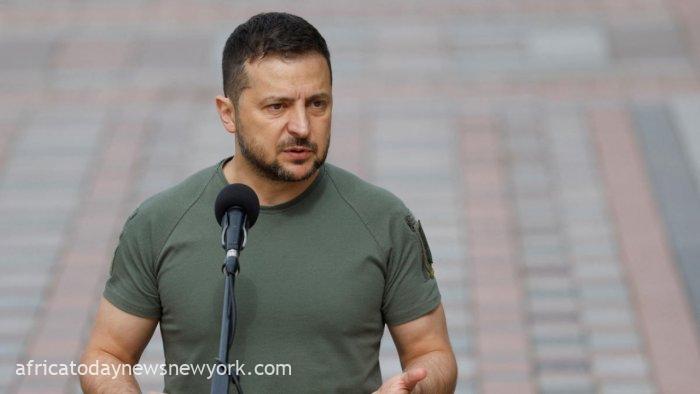The President of Ukraine, Volodymyr Zelenskyy on Monday informed the head of the UN’s International Atomic Energy Agency (IAEA) that the safety at the Zaporizhzhia nuclear power station could not be guaranteed while the facility was occupied by Russian forces as part of what he described as Moscow’s ‘radiation blackmail’.
Zelenksyy held meetings with IAEA Director-General Rafael Grossi in the city of Zaporizhzhia on Monday, which is in Ukrainian-held territory, about 50 km (30 miles) northeast of the nuclear plant with the same name, news agencies reported.
Zelenskyy told Grossi that staff at the Zaporizhzhia plant were under constant pressure from Russian occupying forces, who he said were failing to uphold safety rules and had interfered in technological processes, according to comments on Zelenskyy’s official website which were obtained by Africa Today News, New York.
‘Without an immediate withdrawal of Russian troops and staff from the Zaporizhzhia nuclear power station and adjacent areas, any initiatives on restoring nuclear safety and security are doomed to failure,’ Zelenskyy said.
Read Also: Give Us Jets, Missiles Or Expect A Long War, Zelenskyy To EU
‘Holding a nuclear power station hostage for more than a year — this is surely the worst thing that has ever happened in the history of European or worldwide nuclear power,’ Zelenskyy said later in his nightly video address.
Africa Today News, New York gathered that Moscow’s forces seized the Zaporizhzhia plant, Europe’s largest nuclear power facility, early in the war, and Russian and Ukrainian forces regularly accuse each other of risking a serious nuclear accident by shelling the facility. Ongoing fighting around the plant and worries its cooling systems could lose power have raised fears of a nuclear disaster.
The Zaporizhzhia Nuclear Power Plant’s six reactors are currently in shutdown mode and the facility is receiving the electricity it needs to prevent a reactor meltdown through just one remaining power line.
The plant has had to switch to emergency diesel generators to power its essential cooling systems as power from the main grid has been cut by shelling. Earlier this month, fighting interrupted power supply to the plant for half a day, forcing staff to activate the backup generators.

